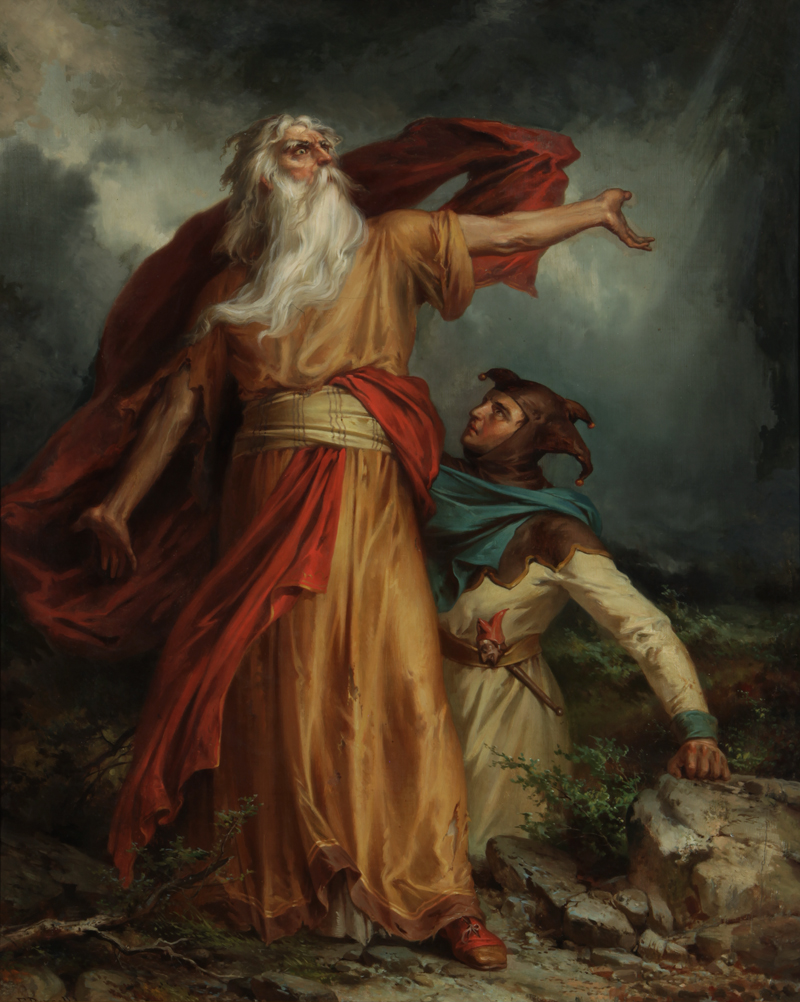King Lear and the Heart of Politics
**Events may have been canceled or postponed. Please contact the venue to confirm the event.
Date & Time
Sat, Mar 09 2:00 PM - 4:30 PM
Address (map)
1407 Chapala St.
Venue (website)
Concord House World Culture Institute
King Lear and the Heart of Politics
Saturday, March 9, 2024
2:00 – 4:30 pm (PT)
In-person only
Concord House Seminar Room, Institute of World Culture, 1407 Chapala St., Santa Barbara, CA
Presenter: Marlin Roehl
Often one reads that Shakespeare did more than write for his time; rather, he sowed seeds germane to socio-political and individual visions, values, and characteristics of our time. We cannot overlook that a study of Shakespeare’s plays reveals that he was a student of the historical Axial Age; the name given by Karl Jaspers to the pivotal period of 900 to 200 BCE. Consequently, Shakespeare serves as pillar to an arch bridging ancient to modern times. Karen Armstrong tells us in her book, The Great Transformation: The Beginning of our Religious Traditions, that the Axial Age, “was a time when Confucianism and Daoism in China; Hinduism and Buddhism in India; monotheism in Israel; and philosophical rationalism in Greece came into being. During this intense period of creativity [which Armstrong extends to include the later inception of Christianity and Islam], spiritual and philosophical geniuses pioneered an entirely new kind of human experience.”
Regarding dramatic arts, Armstrong notes that the once-private Dionysian rites were, in the Axial Age, performed en mesoi, in public. [Dramatic arts] “displayed the new self-consciousness of the Axial Age as the audience watched the mind of the protagonist turning in upon itself, meditating upon alternatives, and coming, tortuously, to a conclusion. And like philosophers, the tragedians questioned everything: the nature of the gods, the value of Greek civilization, and the meaning of life.”
In the same spirit, Shakespeare boldly presented his poignant plays to Royalty, to nobles, and to commoners—all within a shared globe of time, place, and experience. His attention to parapolitical moral and ethical causality called for heroic truthfulness, pathos, and at times heart-rending, at other times humorous compassion. His artistic techniques and astute insight into character evoke individual and societal transformation by means of self-conscious exploration, philosophical dialectic, and empathy.
Our January keynote speakers set the tone for this year’s IWC studies by referencing the “Initial Declaration of the Parliament of the World’s Religions” which states, “By a global ethic we do not mean a global ideology or a single unified religion beyond all existing religions, and certainly not the domination of one religion over all others. By a global ethic we mean a fundamental consensus on binding values, irrevocable standards, and personal attitudes.” Shakespeare’s King Lear is such a study.
The Parliament warned: “Without such a fundamental consensus on an ethic, sooner or later every community will be threatened by chaos or dictatorship, and individuals will despair”—it seems such are our times. Our exploration of Shakespeare’s King Lear is intended to be a study of humanist, parapolitical reality with an effort to form a more perfect global union. As the World Religions Parliament suggests — “We consider humankind our family. We must strive to be kind and generous. We must not live for ourselves alone, but should also serve others, never forgetting the children, the aged, the poor, the suffering, the disabled, the refugees, and the lonely.”
Discussion and light refreshments will follow the talk.

